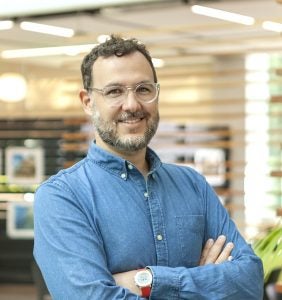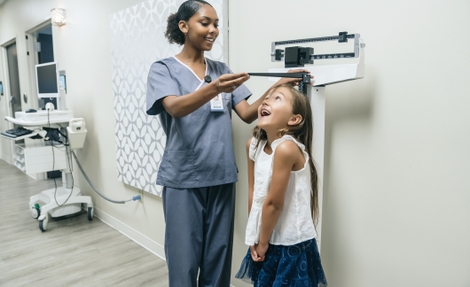Report on the “Fraser’s Trek for Type 1” Initiative
Executive Summary
A fundraising initiative, “Fraser’s Trek for Type 1,” is being undertaken by Mr. Gary Fraser to support the Sophia Ruggieri Memorial Foundation in its mission to assist youth battling Type 1 Diabetes (T1D). This report details the initiative and analyzes its direct contributions to the United Nations Sustainable Development Goals (SDGs), specifically SDG 3 (Good Health and Well-being), SDG 4 (Quality Education), and SDG 17 (Partnerships for the Goals). The funds raised will enhance health outcomes, provide educational opportunities, and strengthen community partnerships for a vulnerable population group.
Initiative Overview and Objectives
Project Background: Fraser’s Trek for Type 1
Beginning October 29, Mr. Gary Fraser, a search and rescue volunteer, will embark on a 15-day trek to the Mount Everest base camp. The expedition is designed to raise funds and awareness for the management of Type 1 Diabetes, honoring the memory of Sophia Ruggieri, who passed away from complications of the disease.
Fundraising and Resource Allocation
Proceeds from the initiative are earmarked for programs that directly support children and young adults with T1D. The allocation of resources is focused on achieving tangible outcomes in health and education, including:
- Providing college scholarships to students with T1D.
- Sponsoring attendance for children at Camp Kudzu, a specialized camp for T1D management and support.
- Funding necessary medical supplies and devices for T1D patients.
Alignment with Sustainable Development Goals (SDGs)
SDG 3: Good Health and Well-being
The initiative makes a direct contribution to SDG 3, which aims to ensure healthy lives and promote well-being for all at all ages. The project’s focus aligns specifically with Target 3.4, which seeks to reduce premature mortality from non-communicable diseases.
- Disease Management: By funding medical supplies and specialized camp experiences, the Foundation improves the capacity of young people to manage T1D, a chronic non-communicable disease.
- Health Education: Camp Kudzu provides a critical educational environment where children learn essential skills for managing their condition, promoting long-term health and well-being.
SDG 4: Quality Education
The Foundation’s work strongly supports SDG 4 by promoting inclusive and equitable educational opportunities. The initiative addresses Target 4.3, which aims to ensure equal access to tertiary education.
- Educational Access: The college scholarship program directly reduces financial barriers for students with T1D, enabling them to pursue higher education.
- Inclusive Support: By assisting a specific group facing unique health-related challenges, the Foundation promotes an inclusive educational system where a chronic condition does not preclude academic advancement.
SDG 17: Partnerships for the Goals
This initiative is an example of a multi-stakeholder partnership as outlined in SDG 17. It demonstrates a successful collaboration between civil society actors to achieve sustainable development objectives.
- Civil Society Partnership: The trek represents a partnership between an individual volunteer (Mr. Fraser) and a non-profit public charity (The Sophia Ruggieri Memorial Foundation).
- Mobilization of Resources: The fundraising campaign mobilizes financial resources from the public to support targeted health and education goals, embodying the spirit of global partnership for sustainable development.
Organizational Profile: The Sophia Ruggieri Memorial Foundation
Mission and Operations
The Sophia Ruggieri Memorial Foundation is a 100% volunteer-run public charity dedicated to providing immediate and cost-effective assistance to youth with T1D. Its mission is executed through direct aid and partnerships with other 501(c)3 organizations.
Key Programs and Impact
The Foundation’s primary activities are structured to deliver measurable benefits in line with its mission and stated SDG contributions.
- Camp Kudzu Sponsorship: The Foundation sends children to Camp Kudzu, a specialized camp in Georgia that combines recreation with education on T1D management for children aged 8 to 18.
- College Scholarship Program: Financial awards are provided to students with T1D to support their pursuit of higher education.
- Medical Support Funding: The organization helps fund the provision of essential medical supplies and devices for individuals managing T1D.
Analysis of the Article in Relation to Sustainable Development Goals
1. Which SDGs are addressed or connected to the issues highlighted in the article?
SDG 3: Good Health and Well-being
- The article’s central theme is the battle against Type 1 Diabetes (T1D), a non-communicable disease. The Sophia Ruggieri Memorial Foundation’s mission is to provide immediate help to youth with T1D, which directly contributes to promoting health and well-being.
- The foundation’s activities, such as funding medical supplies and sending children to a specialized camp (Camp Kudzu) where they learn to manage their disease, are concrete actions aimed at improving the health outcomes of a specific population group.
SDG 4: Quality Education
- The article explicitly states that the foundation “awards college scholarships to students with Type 1 Diabetes.” This action directly supports access to tertiary education for a vulnerable group, promoting inclusive and equitable quality education.
- Furthermore, sending children to Camp Kudzu, where they “learn important steps in dealing with this silent disease,” contributes to health education, which is a vital component of overall learning and well-being.
SDG 17: Partnerships for the Goals
- The Sophia Ruggieri Memorial Foundation is described as a “100% volunteer public charity” and a “501(c)3 organization” that works “indirectly through other 501(c)3 organizations.” This demonstrates a civil society partnership aimed at achieving common goals.
- The fundraising event, “Fraser’s Trek for Type 1,” relies on public donations and the volunteer efforts of individuals like Gary Fraser, showcasing a multi-stakeholder partnership involving civil society and the general public to mobilize resources for sustainable development objectives.
2. What specific targets under those SDGs can be identified based on the article’s content?
SDG 3: Good Health and Well-being
- Target 3.4: By 2030, reduce by one-third premature mortality from non-communicable diseases through prevention and treatment and promote mental health and well-being. The foundation’s work directly addresses this target by providing support (medical supplies, education) to young people with Type 1 Diabetes, a non-communicable disease, to help them manage their condition and prevent tragic complications, as happened to Sophia Ruggieri.
SDG 4: Quality Education
- Target 4.3: By 2030, ensure equal access for all women and men to affordable and quality technical, vocational and tertiary education, including university. The foundation’s program of awarding “college scholarships to students with Type 1 Diabetes” is a direct contribution to this target, as it helps remove financial barriers to higher education for this specific group.
SDG 17: Partnerships for the Goals
- Target 17.17: Encourage and promote effective public, public-private and civil society partnerships, building on the experience and resourcing strategies of partnerships. The article describes a civil society partnership in action. The Sophia Ruggieri Memorial Foundation, a non-profit, partners with the public through fundraising and with other organizations like Camp Kudzu to deliver aid, perfectly illustrating the model of partnership this target promotes.
3. Are there any indicators mentioned or implied in the article that can be used to measure progress towards the identified targets?
SDG 3: Good Health and Well-being
- Implied Indicator: The number of children and young adults supported by the foundation. The article mentions the foundation “sends children to Camp Kudzu” and “helps fund the provision of needed medical supplies and devices.” Tracking the number of beneficiaries receiving these services would be a direct measure of the foundation’s impact on the health and well-being of youth with T1D.
SDG 4: Quality Education
- Mentioned Indicator: The number of college scholarships awarded. The article explicitly states that the foundation “awards college scholarships to students with Type 1 Diabetes.” This is a clear, quantifiable indicator that can be used to measure progress towards ensuring equal access to tertiary education.
SDG 17: Partnerships for the Goals
- Implied Indicator: The amount of financial resources mobilized through fundraising. The article highlights the “Fraser’s Trek for Type 1” as a fundraising effort and provides a link to donate. The total amount of money raised through such initiatives serves as an indicator of the success of these civil society partnerships in mobilizing resources for development goals.
4. SDGs, Targets, and Indicators Identified in the Article
| SDGs | Targets | Indicators |
|---|---|---|
| SDG 3: Good Health and Well-being | Target 3.4: Reduce premature mortality from non-communicable diseases and promote mental health and well-being. | Number of children and young adults supported with medical supplies and specialized camp attendance. |
| SDG 4: Quality Education | Target 4.3: Ensure equal access for all to affordable and quality tertiary education. | Number of college scholarships awarded to students with Type 1 Diabetes. |
| SDG 17: Partnerships for the Goals | Target 17.17: Encourage and promote effective public, public-private and civil society partnerships. | Amount of funds raised through fundraising initiatives like “Fraser’s Trek for Type 1.” |
Source: natlawreview.com







